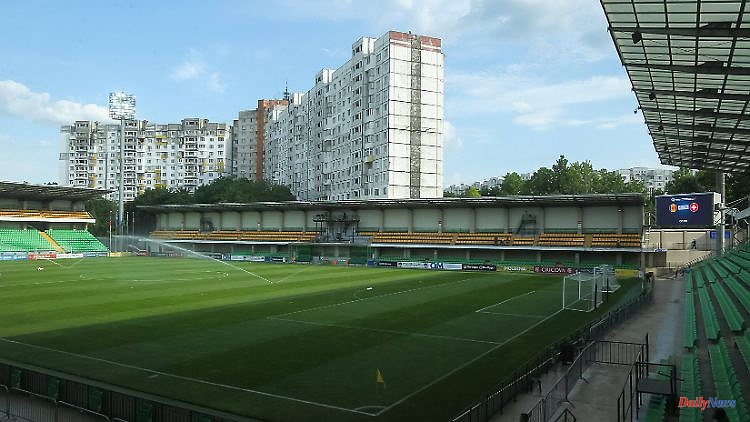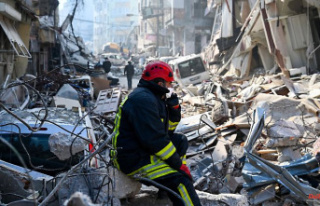Fearing a coup d'état, Moldova's national authorities order a ghost match in the UEFA Conference League. The fans of the first division club Partizan Belgrade from Serbia are denied entry to the neighboring country of Ukraine.
It sounds like a plot from a movie, but it takes appropriate precautions in the ex-Soviet Republic of Moldova. Thursday's UEFA Conference League match between Sheriff Tiraspol and Partizan Belgrade will be played as a ghost game. This was confirmed by UEFA when asked by ntv.de. Not because the pandemic is back, but because the country's secret service is said to have urgently warned against the entry of guest fans.
Serbian supporters could take part in a pro-Russian coup to overthrow the pro-Western government, sources in Moldova said. UEFA did not want to comment on the relevant safety instructions, but pointed out that the "national authorities" had ordered spectators to be excluded.
Sheriff Tiraspol, a club from the separatist region of Transnistria, escaped from the Europa League to the Conference League last fall. But having played their group stage games in Tiraspol in 2022, the match against Partizan had already been moved from the pro-Russian region to the Moldovan capital Chisinau. But here, too, Moldova no longer felt adequately protected as a state. A letter to Sheriff Tiraspol from the national football association, which circulated on social media, elaborated on the threat. The secret service identified a "serious threat" to Moldova and insisted that the game be played behind closed doors.
In the morning, the Russian Foreign Ministry had already reacted sharply to the allegations by the President of the Republic of Moldova, Maia Sandu. She had warned of a Russian attempt to overthrow her country and outlined an alleged plan by Moscow in more detail. The pro-European head of state had explained that this included inciting violent riots and attacks on Moldovan state institutions and disguising them as protests, citing intelligence documents that Moldova had recently received from neighboring Ukraine.
The material includes, among other things, detailed instructions on how to enter Moldova for Russian, Belarusian, Montenegrin and Serbian citizens. "Such allegations are absolutely unfounded and unproven," a spokeswoman for the Russian Foreign Ministry said, accusing Ukraine and Moldova of a smear campaign against Russia.












